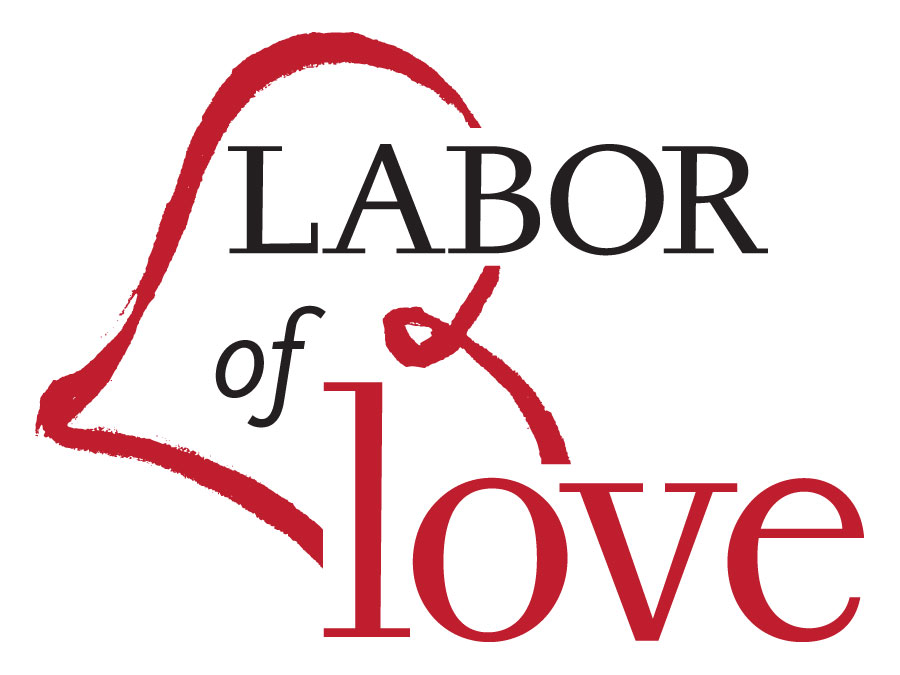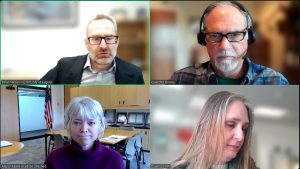Activists for unhoused share ‘labor of love’
5 min read
Three local activists talk about their 'labor of love' for our unhoused neighbors on the streets of Eugene.
Three local activists talked about their passion for supporting Eugene’s homeless humans. From Love for Lane County, Sarah Koski.
[00:00:08] Sarah Koski: The theme being labor of love, why do we do the things that we do to support the homeless and really hope to inspire other people to start volunteering, or what’s the reasons that we pour so much of our passion and our time into supporting and advocating for our brothers and sisters.
[00:00:30] Julie Lambert: I have been thinking about why is it, why am I so driven? Why do I keep going to all of these meetings about trying to change legislation and, using my voice and, interviewing people and putting information out there on radio. Why do I do that? And the best reason I can come up with is I had firsthand experience and I don’t want anyone to go through that again. And I see it magnified.
[00:00:57] For example, right now I’ve seen the highest rate of homelessness. In 10 years since I’ve been here it’s very disheartening. It bothers me to the point where I have to do something about it. I think it’s just the humanity about it. People are treated like little more than animals and they have very little legal recourse for their situations. A lot of the recent evictions were around small park rules.
[00:01:23] People are falling through the cracks. The policemen say, ‘Okay, there’s a safe spot that you can go to.’ And the person says, yeah, but there’s a waiting list, I can’t get there. And the guy says, ‘ Well, that’s not my problem’. And. also the people that get evicted for not fitting into a 12 by 12 space. Where are those people going? And how do we reach out to them so that they’re not just floundering? Because it’s bad enough to be homeless and know that you don’t have a place in the world, but it’s worse when you are homeless and you think you found a place in the world and you’re told you can’t even have that.
[00:02:00] I can’t really explain it, Sarah, other than just to say that, I don’t like what I’m seeing. If I can help, I want to do something.
[00:02:10] Heather Sielicki: For me when I realized the extent of the homelessness crisis, I was just overwhelmed that this problem even existed and that it had gotten as bad as it was, and it didn’t seem like there was any urgency around it, and that was just shocking to me. It still is shocking to me to this day that our society could be so heartless and neglect so many people.
[00:02:32] You hear a lot of people say, ‘Oh, the drug addicts, mentally ill.’ There’s a lot of stigma in our society around substance abuse disorder and mental illness, certainly. But if you’re a provider and you’re out there, what you see is people with extreme disabilities, with facial deformities. I mean, it’s, it’s all of the discrimination And just negativity within the human soul to, to look down at people so that you don’t have to maybe feel the suffering.
[00:03:01] What I love about Millennials and Gen Z is that they’re not afraid to point out the obvious, like, ‘Hey, this is wrong. ‘ I’ve been just totally blown away by Millennials in terms of activism around women’s rights and Black Lives Matter and all of those things, because maybe not knowing the right way to do it, people are doing it anyway and changing the systems and causing people to ask the right questions. So it’s clumsy and messy getting involved with politics. And I don’t know that there’s any right way to do it other than just jump in and start raising your voice for what matters.
[00:03:35] John Q: Heather said in Eugene, neighborhood associations are a great way to get involved.
[00:03:40] Heather Sielicki: in Florida we didn’t have a neighborhood association. Our neighborhood was really low income but our Crime Watch was active. I was involved with my Crime Watch group and that was how I first got involved with community organizing and I really loved the diversity of being able to work with your neighbors. And when I moved here, I joined the neighborhood association because I wanted to know what was going on and be involved. And it really is like the gateway to democracy in Eugene, because you have a lot of support from Human Rights and Neighborhood Involvement staff that will really come alongside you wherever you’re starting from, and provide you with information on how government works and how you can get involved.
[00:04:20] So I’m really grateful for that program and the people that I worked with—Cindy and Rene—and they all they were always very responsive and encouraging and getting people involved. And I’m finding that to be the case too, with this this new guy, Robert, and right now we’re trying to start up the neighborhood association in West Eugene which hasn’t been activated in 20 years.
[00:04:41] I think even as great as the neighborhood associations, I think can be, there’s a lot of equity issues because there’s three neighborhood associations that haven’t been active. They’re low-income neighborhoods where there’s a lot of transitional residents because they’re students and maybe they’re unhoused. Where we’re lacking is in supporting communities that don’t have the extra time and energy to put into a neighborhood association to make it really function.
[00:05:08] I think we could help with the groundswell of getting people to realize how much their voice matters. Even, even just the people who I talk to every day that are calling to complain, there’s so much passion in their voice. They’re complaining because they see a better world and they’re unhappy with what exists. And it’s that kind of people with that passion who want to make a difference that need to be brought into the conversation and feel that they have an opportunity to be heard and make a difference.
[00:05:40] Sarah Koski: Like you said, with advocacy, with organization of the voices, there are such poetic stories and voices coming through these camps. And there are so many, highly intelligent beautifully put orators and poets coming from these camps that are able to tell their stories in such a moving, rousing way. And those are the types of stories that I think that our community who’s not used to dealing with the unhoused needs to hear from. There has to be friends and groups and people who come together to share these ideas because we get stronger and we get better.
[00:06:20] John Q: Heading into the winter, local activists for our unhoused neighbors.






